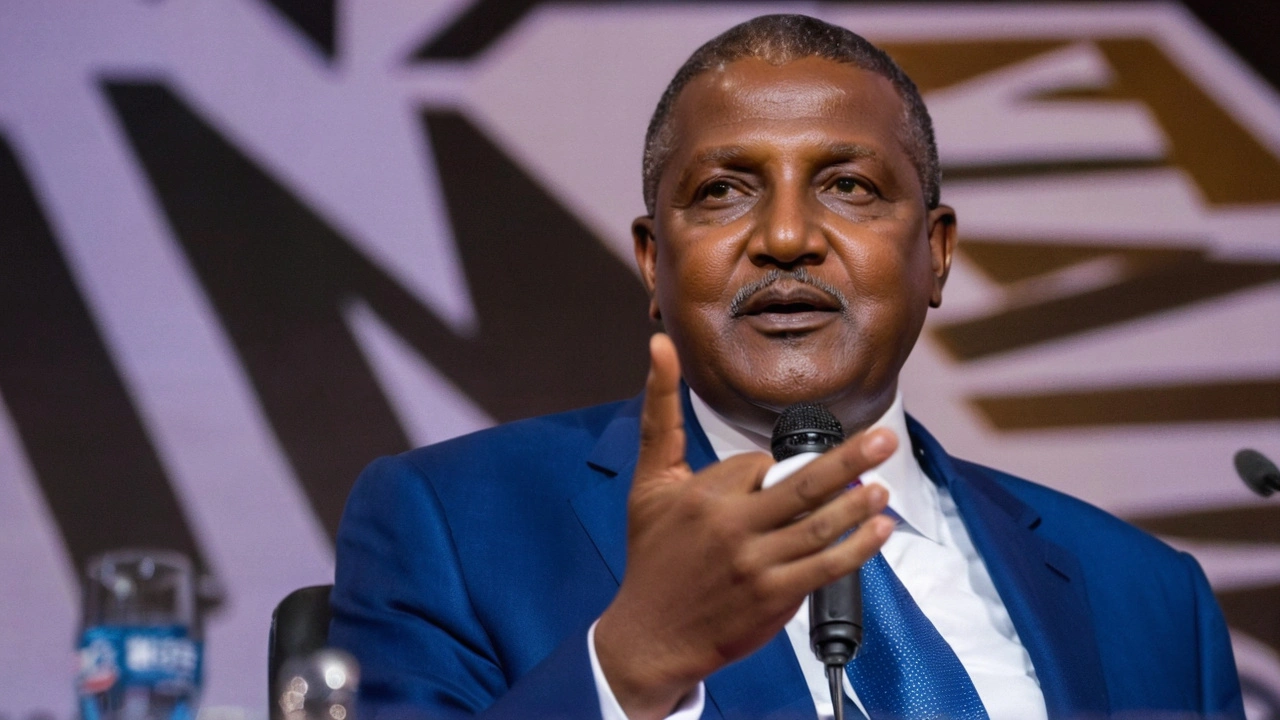The NNPC-Aliko Dangote Dispute: Threats to Nigeria's Investment Landscape
The ongoing clash between Aliko Dangote, Africa's wealthiest man, and the Nigerian National Petroleum Company (NNPC) is unraveling as one of the most significant business conflicts in recent Nigerian history. At the heart of the dispute is Dangote's $20 billion refinery project, which has far-reaching ambitions to curtail Nigeria's heavy dependence on imported fuel. In a bold accusation, Dangote has claimed that officials from the NNPC, along with certain oil traders, have been running a blending plant in Malta. This plant, according to Dangote, has dramatically increased petroleum imports from Malta to Nigeria, which hit a staggering $2.08 billion in 2023—a 342% rise from 2013.
The Malta Connection
Diving deeper into the Malta connection, these allegations, if true, point to a complex network of interests that potentially undermines the integrity of Nigerian trade policies. The escalation in import numbers is not just a figure on a balance sheet; it represents a systemic challenge to Dangote's vision of self-reliance for Nigeria's oil sector. However, the allegations have been met with strong denial from Mele Kyari, CEO of the NNPC, who has dismissed Dangote’s claims as unfounded.
Regulatory Hurdles
The plot thickens with the involvement of the Nigerian Midstream and Downstream Petroleum Regulatory Authority (NMDPRA). This regulatory body has raised concerns regarding the quality of diesel produced by the Dangote Petroleum Refinery. Such regulatory scrutiny throws another spanner in the works, creating an environment of friction and uncertainty. The NMDPRA's stance adds a layer of complexity to the already contentious relationship between Dangote and the NNPC.
Support for Dangote
Amidst these allegations and regulatory pushbacks, Dangote has not been left to fend for himself. A cohort of influential shareholders and prominent figures have stepped forward, expressing their unwavering support for Dangote and his vision for the refinery. Notable personalities like Akinwumi Adesina, the President of the African Development Bank, Femi Otedola, a well-known Nigerian billionaire, and Atiku Abubakar, former Vice President of Nigeria, have vocally rallied behind Dangote. Their support underscores the importance of the project not just for Dangote but for Nigeria's larger economic aspirations.
Implications for Nigeria’s Economy
The ramifications of this dispute extend far beyond the parties directly involved. The standoff between Dangote and the NNPC is seen by many as a litmus test for Nigeria’s investment climate. The increasing reliance on fuel imports, the allegations of malpractice, and the regulatory hurdles collectively paint a troubling picture of Nigeria as an investment destination. The perception of Nigeria’s business environment, particularly its ability to support local enterprises in strategic sectors, is under severe scrutiny.
In a country with vast natural resources, the ability to refine crude oil domestically is not just an economic imperative but a point of national pride. The Dangote refinery, with its capacity to transform Nigeria's oil landscape, represents more than just a business venture; it symbolizes potential economic sovereignty. The refinery, when fully operational, promises to supply all of Nigeria’s refined fuel needs, reducing the nation’s dependency on imports and potentially altering the dynamics of fuel pricing and availability.
Historical Context
To understand the gravity of this conflict, it's essential to delve into the historical context of Nigeria's oil industry. Since the discovery of oil in Oloibiri in 1956, Nigeria has largely remained an exporter of crude oil, while importing refined petroleum products. This paradox has been a source of economic strain, leading to recurring fuel scarcities and a burgeoning import bill. Dangote’s refinery thus stands as a beacon of hope in reversing this trend.
The Role of Foreign Investors
Foreign investors are also keenly observing the developments. The dispute sends mixed signals about Nigeria's readiness to support large-scale investments, especially in sectors deemed vital for national development. For a project of this magnitude, involving substantial capital outlay and sophisticated technology, investor confidence plays a crucial role.
Data suggests that foreign direct investment (FDI) in Nigeria has been on a downward trend in recent years, partly due to concerns about regulatory inconsistencies and policy volatility. The Dangote-NNPC saga, with its multifaceted challenges, could either exacerbate these concerns or, if resolved amicably, could restore some degree of confidence among potential investors.
The Way Forward
Resolving the standoff requires a multifaceted approach. Dialogue between Dangote and the NNPC, facilitated by neutral parties, could pave the way for a resolution. Transparency in the regulatory process and a commitment to fair play are essential. Boosting local production capacity not only serves economic interests but also aligns with broader national goals of self-sufficiency.
Moreover, the government’s role in mediating and ensuring a level playing field cannot be overstated. Policies that bolster investor confidence, safeguard local enterprises, and ensure regulatory clarity are crucial in establishing Nigeria as a credible investment hub.
Conclusion
In sum, the dispute between Aliko Dangote and the Nigerian National Petroleum Company is more than a business tiff. It reflects deeper issues within Nigeria’s oil sector and its regulatory framework. The support for Dangote underscores the broader economic stakes tied to the success of his refinery project. As the country grapples with this high-stakes conflict, the resolution of this issue will undoubtedly shape the future of Nigeria’s investment climate and its quest for economic stability.

